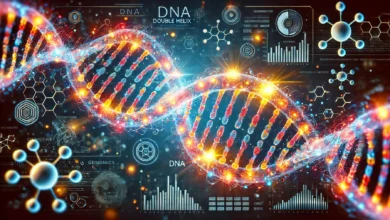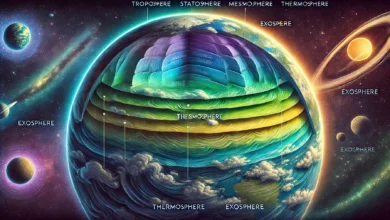Decoding Dopamine: How Your Brain Chemistry Shapes Daily Joy (And How to Hack It)
Decoding Dopamine: How Your Brain Chemistry Shapes Daily Joy (And How to Hack It)
Uncover how dopamine influences motivation, joy, and habits. Learn science-backed strategies to optimize your brain chemistry for sustained well-being and happiness.
Key Points
- Dopamine is a key neurotransmitter involved in motivation, reward, learning, and movement, not just pleasure.
- It drives our pursuit of goals and plays a crucial role in habit formation, reinforcing behaviors that lead to rewards.
- Dopamine imbalances can contribute to conditions like addiction, depression, and ADHD.
- Natural ways to optimize dopamine include setting and achieving small goals, regular exercise, mindfulness, and a balanced diet rich in precursors like tyrosine.
- Overstimulation of dopamine pathways, often seen with addictive substances or behaviors, can desensitize the brain’s reward system, making everyday pleasures less impactful.
- Balancing dopamine levels is essential for sustained well-being, focusing on healthy, intrinsic motivators over artificial, short-term boosts.
Introduction: The Neurotransmitter of Joy and Motivation
Dopamine, often colloquially referred to as the ‘feel-good’ chemical, is a crucial neurotransmitter that plays a pivotal role in our daily lives. Far from being just about pleasure, dopamine’s influence extends to motivation, learning, reward, and even movement. Understanding how this powerful brain chemical operates can unlock profound insights into our behaviors, habits, and overall sense of well-being. It is the chemical messenger that drives us to seek out rewards, learn from experiences, and ultimately, shapes our pursuit of joy.
This article will delve into the intricate world of dopamine, exploring its fundamental science, its multifaceted impact on our daily experiences, and actionable strategies to optimize its levels for enhanced motivation and sustained happiness. By demystifying this neurochemical, individuals can gain a powerful tool for self-understanding and personal growth.
The Science of Dopamine: Beyond Simple Pleasure
At its core, dopamine is a monoamine neurotransmitter synthesized in the brain, primarily in the substantia nigra and the ventral tegmental area (VTA). From these regions, it projects to various parts of the brain, forming distinct pathways that govern different functions. The mesolimbic pathway, for instance, is central to the brain’s reward system, influencing pleasure and motivation. The mesocortical pathway, on the other hand, is involved in cognitive functions such as planning, memory, and emotional responses.
The release of dopamine occurs in response to both anticipated and actual rewards. This release primes the brain for learning and reinforcement, making it more likely that behaviors associated with positive outcomes will be repeated. This intricate dance of anticipation, reward, and learning forms the basis of many of our daily actions and habit formations.
Dopamine isn’t just about pleasure; it’s about the anticipation of pleasure. It drives us to seek, to explore, and to learn.
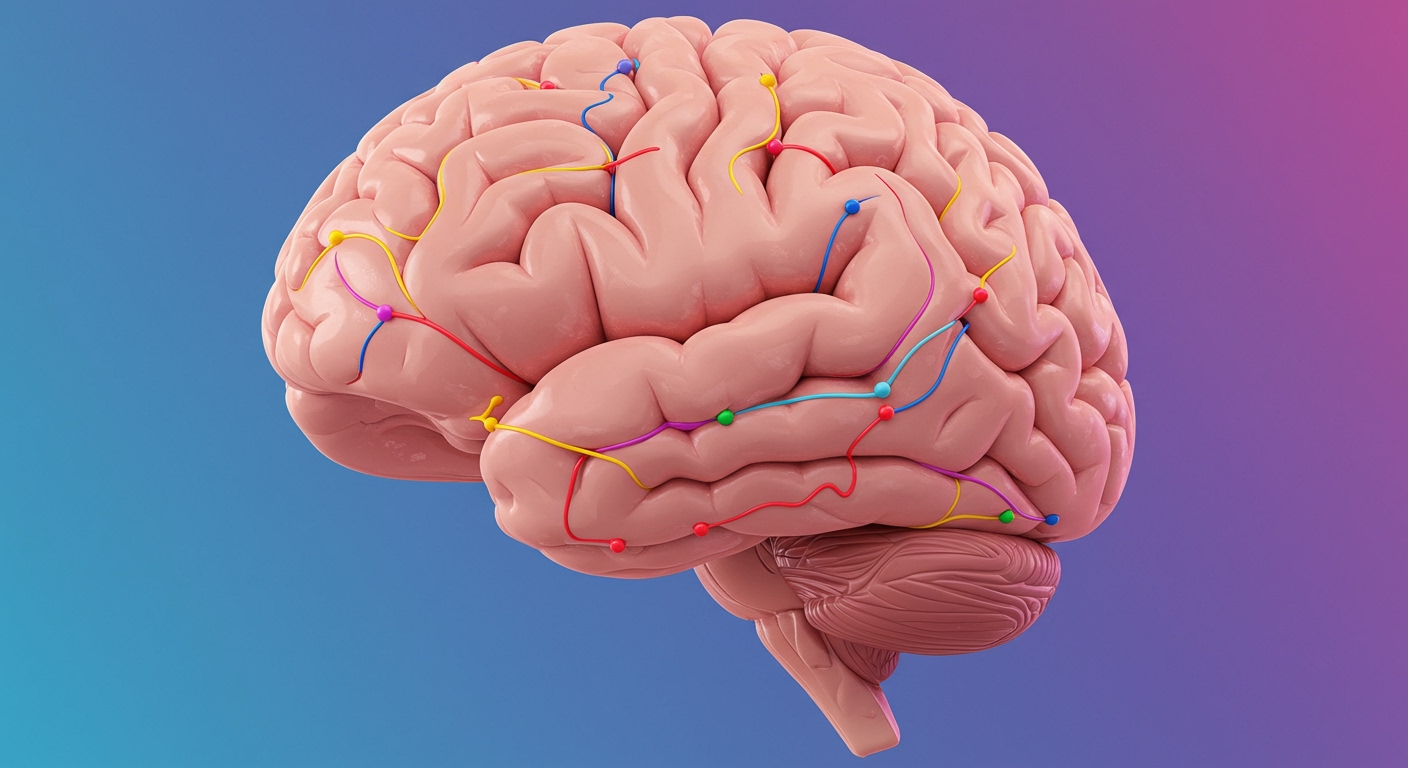
The Science of Dopamine: Beyond Simple Pleasure
Understanding these pathways is key to appreciating dopamine’s complexity. It’s not merely a ‘happy chemical’ but a sophisticated signaling molecule that orchestrates a wide range of neurological processes, influencing everything from voluntary movement to our ability to focus and solve problems. Its pervasive influence highlights its importance in maintaining both physical and mental health.
Dopamine isn’t just about pleasure; it’s about the anticipation of pleasure. It drives us to seek, to explore, and to learn.
Dopamine and Daily Life: Habits, Motivation, and Addiction
Dopamine’s role in our daily lives is far more extensive than many realize. It is the driving force behind our motivation to achieve goals, from the simplest task of getting out of bed to the complex pursuit of a career. When we anticipate a reward, whether it’s a delicious meal, a promotion, or simply checking off a to-do list item, dopamine surges, propelling us towards that outcome. This anticipatory rush is often more potent than the pleasure derived from the reward itself.
This reward-seeking mechanism is fundamental to habit formation. Every time a behavior leads to a dopamine release, the brain reinforces that behavior, making it more likely to become a routine. This applies to both beneficial habits, like exercise or studying, and detrimental ones, such as scrolling endlessly on social media or indulging in unhealthy foods. The immediate, unpredictable rewards offered by technology, for example, exploit this dopamine pathway, leading to addictive patterns.
Dopamine and Daily Life: Habits, Motivation, and Addiction
Furthermore, dopamine plays a critical role in attention and focus. Conditions like ADHD are often linked to dysregulation in dopamine pathways, affecting an individual’s ability to sustain attention and control impulsive behaviors. Similarly, dopamine imbalances are implicated in various neurological and psychological disorders, including Parkinson’s disease, depression, and schizophrenia, highlighting its profound impact on mental and physical well-being.
Hacking Your Dopamine for Sustained Well-being
While dopamine is powerful, its levels are not entirely beyond our control. There are several evidence-based strategies to optimize dopamine production and regulation, fostering a more balanced and joyful life without relying on external, temporary fixes.
One key approach is to engage in activities that provide a sense of accomplishment and mastery. Setting realistic, achievable goals and celebrating small victories can trigger healthy dopamine releases. Breaking down larger tasks into smaller, manageable steps also provides continuous opportunities for dopamine surges as each mini-goal is met. This incremental progress trains the brain to associate effort with reward.
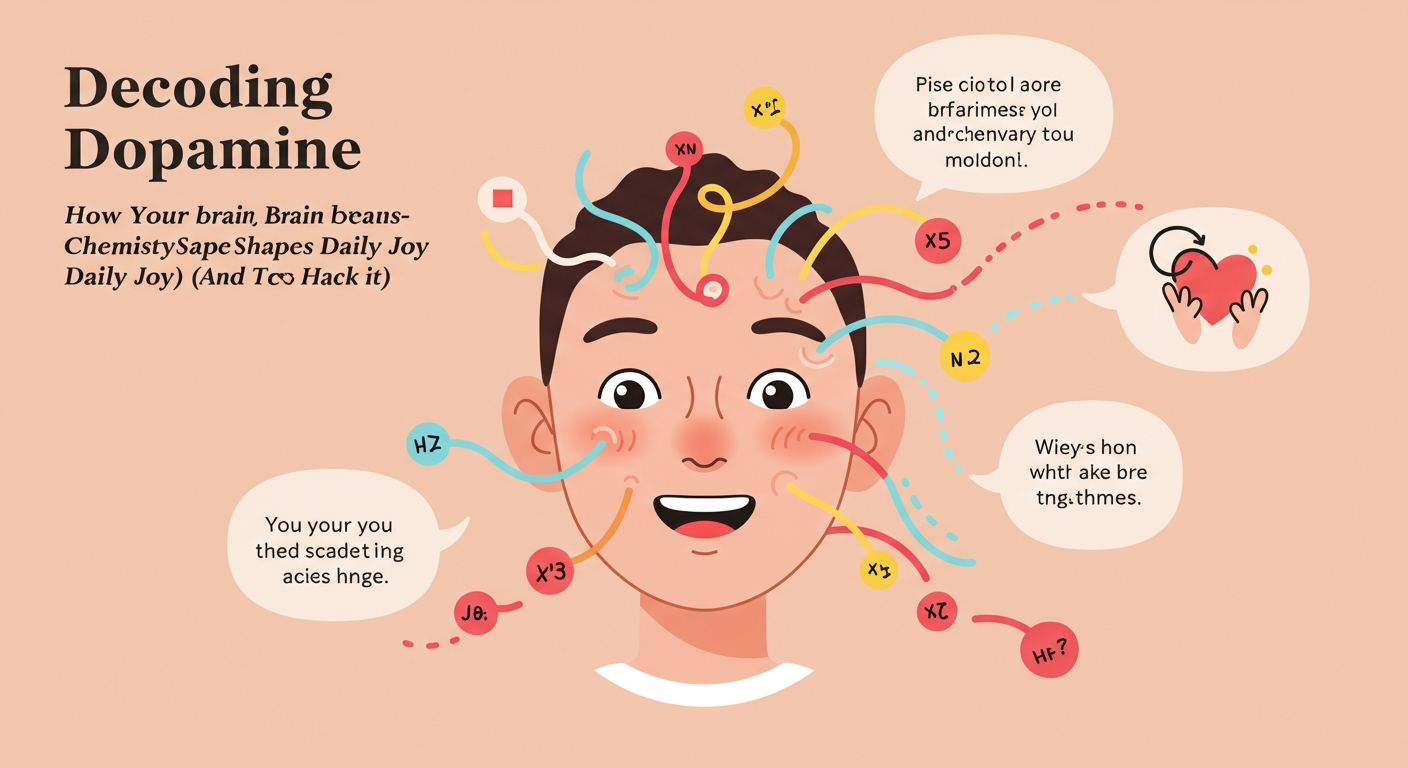
Hacking Your Dopamine for Sustained Well-being
Mindfulness and meditation can also play a significant role. By reducing stress and increasing self-awareness, these practices can help regulate neurotransmitter systems, including dopamine. Focusing on the present moment and appreciating simple joys can shift the brain’s reward system away from constant external seeking towards internal contentment. Regular physical exercise is another potent dopamine booster, providing a natural high and improving overall brain health.
Dietary choices also influence dopamine production. Foods rich in tyrosine, an amino acid precursor to dopamine, such as almonds, avocados, bananas, and lean meats, can support its synthesis. Additionally, ensuring adequate intake of vitamins and minerals like Vitamin B6, folate, and magnesium is crucial for healthy neurotransmitter function. Avoiding excessive sugar and processed foods, which can lead to dopamine spikes followed by crashes, is also advisable for stable mood and energy levels.
Hacking Your Dopamine for Sustained Well-being
Finally, incorporating novelty and variety into daily routines can keep dopamine pathways engaged. Trying new hobbies, learning new skills, or exploring new places stimulates the brain’s reward system in healthy ways, preventing stagnation and fostering a sense of excitement and curiosity.
The Dark Side of Dopamine: Understanding Addiction and Overstimulation
While essential for motivation and reward, the dopamine system can also be exploited, leading to negative consequences, most notably addiction. Substances like drugs and behaviors like compulsive gambling or excessive social media use artificially flood the brain with dopamine, creating an intense, immediate high. However, the brain eventually adapts by reducing its natural dopamine receptors, leading to tolerance. This means more of the substance or behavior is needed to achieve the same effect, creating a vicious cycle of craving and dependence.
This overstimulation can desensitize the reward system, making everyday pleasures seem dull by comparison. Individuals may find it harder to experience joy from simple activities, constantly seeking more intense external stimuli to feel good. Understanding this mechanism is crucial for both preventing and recovering from addictive behaviors. It highlights the importance of fostering healthy, natural dopamine release rather than relying on quick fixes.
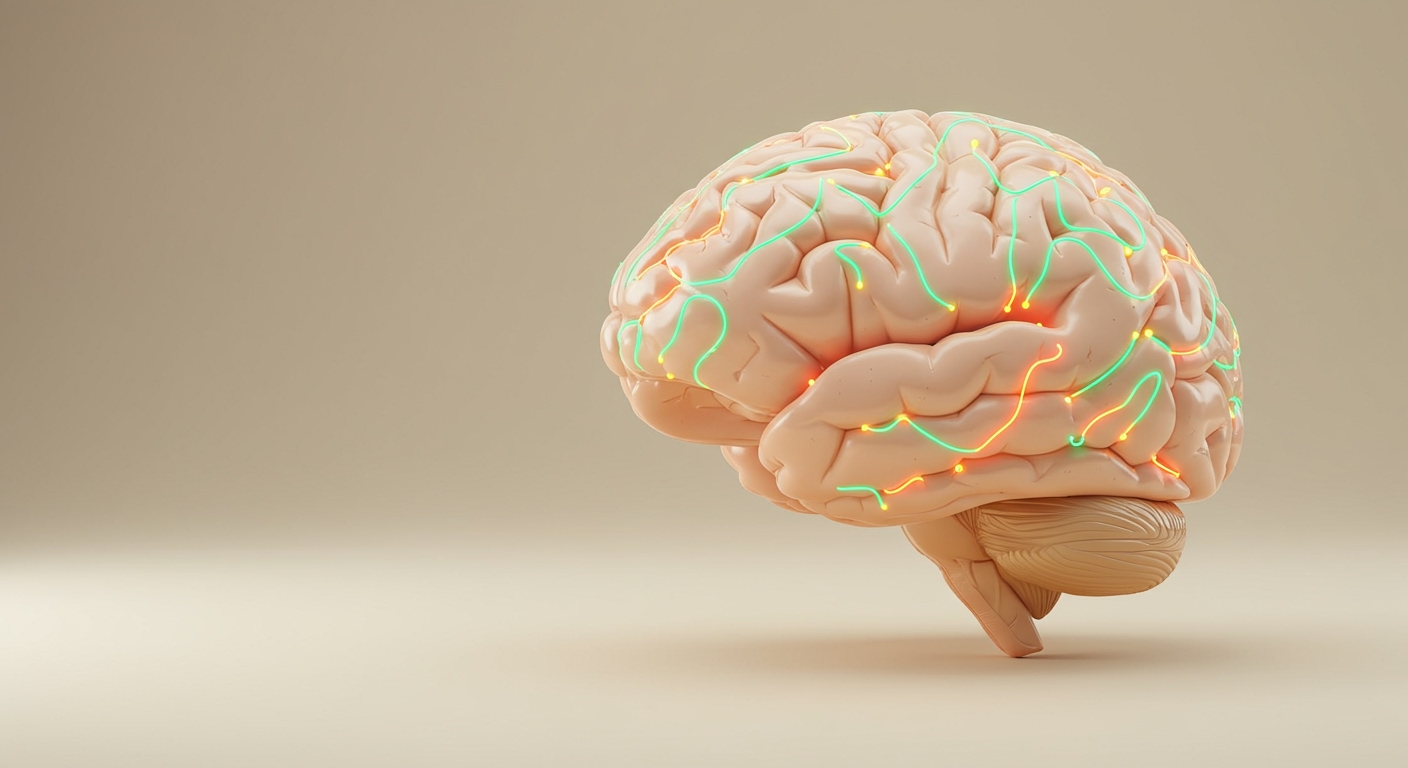
The Dark Side of Dopamine: Understanding Addiction and Overstimulation
The constant pursuit of novelty and instant gratification in modern society, fueled by easily accessible digital rewards, further complicates this. The ping of a notification, the ‘like’ on a post, or the next episode of a streaming series can all trigger small dopamine hits, creating a cycle that can lead to reduced attention spans and a diminished capacity for sustained effort towards long-term goals. Balancing digital engagement with real-world experiences is vital for maintaining a healthy dopamine system.
Conclusion: Balancing Your Brain’s Reward System
Dopamine is a cornerstone of our brain chemistry, profoundly shaping our motivation, learning, and capacity for joy. It is the driver that pushes us forward, but also a system that can be easily overstimulated or imbalanced. Recognizing its critical role is the first step towards consciously influencing our own brain chemistry.
By implementing strategies that support healthy dopamine regulation – through setting achievable goals, engaging in mindfulness, maintaining a balanced diet, and embracing novelty – we can cultivate a more resilient and intrinsically motivated state. The goal is not to eliminate dopamine, but to foster a healthy, balanced system where motivation serves long-term well-being rather than short-term gratification. Mastering the art of decoding and ‘hacking’ your dopamine is about creating a sustainable path to daily joy and purposeful living.
Frequently Asked Questions
What exactly is dopamine and what is its primary function?
Dopamine is a neurotransmitter, a chemical messenger in the brain, that plays a crucial role in the brain’s reward system. It influences motivation, pleasure, learning, memory, and motor control. It drives us to seek out and engage in activities that provide a sense of reward or satisfaction.
How can I naturally increase my dopamine levels?
You can naturally boost dopamine by setting and achieving small goals, engaging in regular physical exercise, practicing mindfulness and meditation, consuming a diet rich in tyrosine (found in foods like nuts, seeds, and lean proteins), getting adequate sleep, and exposing yourself to sunlight.
Is dopamine just about feeling happy or experiencing pleasure?
While dopamine is associated with pleasure, its primary role is more about motivation and the anticipation of reward. It’s the chemical that drives you to pursue things you expect to find pleasurable, rather than being the source of pleasure itself. Overreliance on quick, artificial dopamine spikes can actually diminish your ability to feel pleasure from everyday activities.
Can having too much or too little dopamine be harmful?
Yes, imbalances in dopamine can lead to various issues. Too little dopamine is associated with conditions like Parkinson’s disease (affecting movement) and symptoms of depression (lack of motivation, anhedonia). Too much dopamine, or dysregulation in its pathways, can contribute to conditions like schizophrenia, ADHD, and addictive behaviors, where the reward system is overactive or desensitized.



